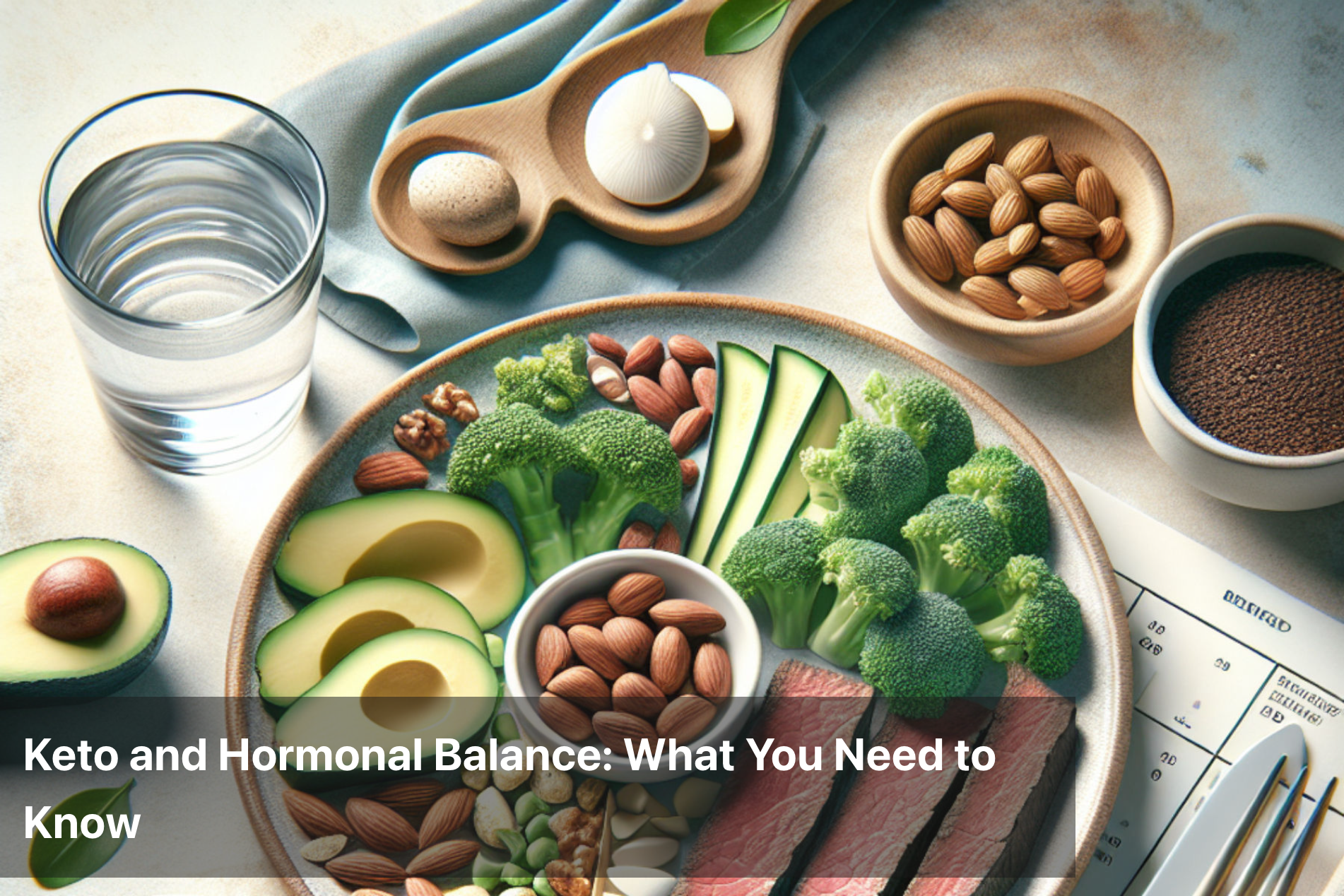
Keto and Hormonal Balance: What You Need to Know
Hormones play a crucial role in almost every function of the body—regulating metabolism, energy levels, mood, reproductive health, appetite, and sleep. An imbalance in hormones can disrupt these functions, leading to fatigue, weight gain, insulin resistance, mood swings, and other chronic health issues. The ketogenic diet, originally designed for neurological health, is now being explored as a powerful tool for hormonal regulation, especially due to its impact on insulin, cortisol, thyroid function, and sex hormones like estrogen and testosterone.
The keto diet is not just about weight loss—it can support hormonal harmony by stabilizing blood sugar, improving insulin sensitivity, reducing inflammation, and promoting fat loss, which in turn influences hormonal health.

How the Keto Diet Works
The ketogenic diet involves drastically reducing carbohydrate intake (typically under 50 grams per day) while increasing fat consumption and maintaining moderate protein intake. This macronutrient shift forces the body into ketosis, a metabolic state where fat is used as the primary source of energy instead of glucose.
During ketosis, the liver converts fat into ketones, an efficient and clean-burning fuel source. This switch helps regulate insulin and blood sugar levels, which has a cascading effect on other hormones. Because hormones are intricately connected, supporting one area (like insulin sensitivity) often improves others such as cortisol, thyroid, and reproductive hormones.
Hormonal Imbalance: Causes and Symptoms
Hormonal imbalances can occur due to a variety of factors, including poor diet, chronic stress, lack of sleep, excessive sugar consumption, and sedentary lifestyle. Certain conditions like polycystic ovary syndrome (PCOS), hypothyroidism, and insulin resistance are directly linked to hormone dysfunction.
Common symptoms of hormonal imbalance include:
Unexplained weight gain or difficulty losing weight
Mood swings, anxiety, or depression
Fatigue or low energy
Irregular menstrual cycles or PMS
Acne or skin issues
Sugar cravings
Hair thinning or hair loss
Low libido or sexual dysfunction
The ketogenic diet can support hormonal balance by addressing some of the root causes—especially blood sugar instability, chronic inflammation, and excess body fat.
Key Hormones Influenced by the Keto Diet
1. Insulin
One of the most directly impacted hormones on keto, insulin is responsible for transporting glucose into cells. Chronically high insulin levels from frequent carbohydrate intake can lead to insulin resistance, type 2 diabetes, and obesity.
Keto lowers carbohydrate intake, significantly reducing the body’s need for insulin. This improves insulin sensitivity, helps manage blood sugar, and facilitates fat burning.
2. Cortisol
Cortisol, the stress hormone, rises in response to inflammation, blood sugar crashes, or sleep deprivation. Chronic cortisol elevation can lead to belly fat accumulation, fatigue, and anxiety.
The keto diet promotes stable energy levels and reduces inflammation, helping keep cortisol in balance. However, overly restrictive dieting or lack of proper nutrition on keto may increase stress, so nutrient-dense meals and adequate calories are important.
3. Estrogen and Progesterone
In women, the balance between estrogen and progesterone is crucial for reproductive health, menstrual regularity, and mood. Estrogen dominance—often linked to excess body fat and insulin resistance—can cause irregular cycles, PMS, and fertility issues.
By supporting weight loss, lowering insulin, and reducing inflammation, keto can help rebalance estrogen and progesterone. Many women with PCOS report improved cycles and fertility on a ketogenic lifestyle.
4. Testosterone
In men and women, testosterone supports muscle growth, metabolism, and libido. Obesity, high sugar intake, and insulin resistance can lower testosterone levels.
Keto enhances fat loss and improves insulin function, which can contribute to healthy testosterone levels. Including enough dietary fat and protein is also essential to support hormone production.
5. Thyroid Hormones
The thyroid gland produces hormones that regulate metabolism and energy. Some people express concern that very low-carb diets may lower thyroid hormone levels (specifically T3). While keto may slightly reduce T3, this often reflects improved metabolic efficiency rather than dysfunction.
To support thyroid health on keto:
Avoid overly low calorie intake
Include iodine-rich foods (seaweed, eggs)
Ensure adequate selenium, zinc, and iron from whole food sources
Best Foods for Hormonal Balance on Keto
Food |
Benefit |
|---|---|
Avocados |
Rich in potassium, fiber, and healthy fats for hormone production |
Salmon and fatty fish |
High in omega-3s, reduces inflammation, supports brain and hormone health |
Eggs |
Provide cholesterol (precursor for hormone synthesis), B vitamins |
Leafy greens |
Detox support, magnesium, calcium, and folate |
Nuts and seeds |
Source of healthy fats, magnesium, and zinc |
Coconut oil and ghee |
Support metabolism and hormone synthesis |
Lofoods keto atta & snacks |
Convenient low-carb meals and snacks to support stable blood sugar |
Bone broth |
Rich in collagen and amino acids for gut and hormone health |
Sample Hormone-Balancing Keto Meal Plan (1 Day)
Meal |
What to Eat |
|---|---|
Breakfast |
Scrambled eggs with spinach, avocado slices, and ghee |
Lunch |
Grilled salmon with sautéed kale and Lofoods keto roti |
Snack |
Lofoods keto cookies or keto namkeen + herbal tea |
Dinner |
Chicken curry with coconut milk and cauliflower rice |
Drink |
Bone broth with turmeric or ginger |
Hormone-Friendly Keto Recipes
1. Avocado Egg Salad (Breakfast or Snack)
Ingredients:
2 hard-boiled eggs
1 ripe avocado
1 tsp lemon juice
Salt, pepper, paprika
Instructions: Mash all ingredients together and serve on Lofoods low-carb crackers or lettuce wraps.
2. Hormone-Supporting Keto Smoothie
Ingredients:
1/2 avocado
1 scoop collagen peptides
1 tbsp flaxseeds
1/2 cup unsweetened almond milk
Handful of spinach
Ice cubes
Instructions: Blend until smooth. This smoothie supports estrogen balance, skin health, and gut lining.

Using Lofoods to Stay Consistent
Lofoods offers a variety of keto-friendly, hormone-supporting foods made with clean, low-carb ingredients ideal for Indian households. From keto atta for rotis and dosas to low-carb namkeen, cookies, and snacks, these products allow flexibility and convenience without compromising on hormonal health or ketosis.
With Lofoods in your pantry, creating balanced, blood sugar-stabilizing meals becomes effortless, even on a busy schedule.
Summary
The ketogenic diet can be a powerful tool for rebalancing hormones by stabilizing blood sugar, reducing inflammation, supporting fat loss, and promoting metabolic health. Key hormones like insulin, cortisol, estrogen, testosterone, and thyroid hormones respond positively to the nutrient-dense, low-carb, high-fat structure of keto.
A well-balanced keto approach—rich in whole foods, healthy fats, and micronutrients—can improve energy, mood, menstrual health, weight management, and fertility. Using practical resources like Lofoods’ keto staples makes it easier to stay consistent while supporting the body’s natural hormonal rhythm. With the right nutrition, hormonal balance is not just achievable—it’s sustainable.
This Blog post is an initiative by Lo! Foods, to provide accurate and Nutritionist / Doctor approved information related to Health. Lo! Foods is India's leading brand for Everyday Functional Foods. Foods designed for specific Health conditions or Needs. Lo! Foods also runs India's largest range of Low Carb Healthy Cloud Kitchens, under the brand names of Lo!, ProteinChef, ATH (All Things Healthy) and DiabeSmart.









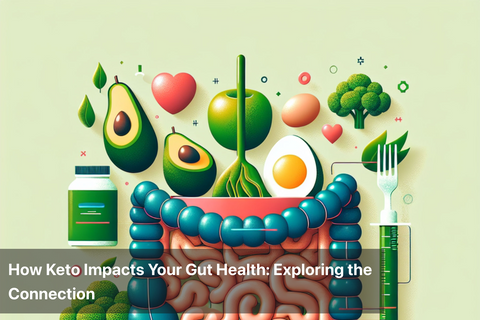
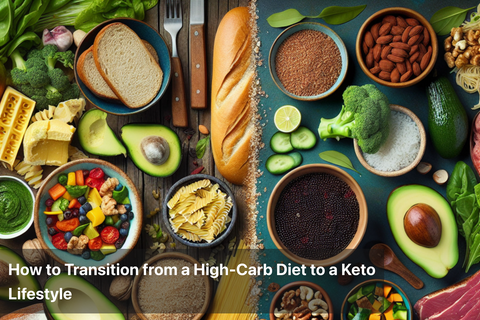
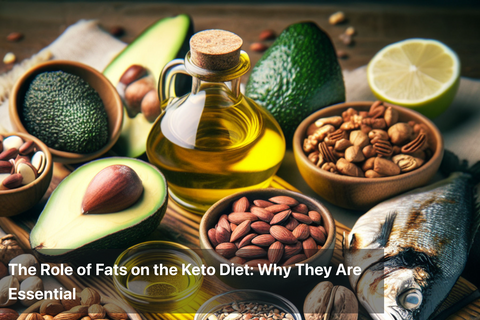
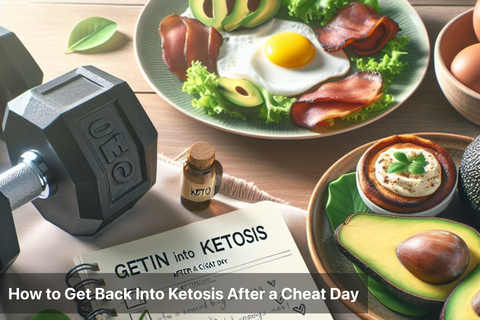
Leave a comment
Your email address will not be published.